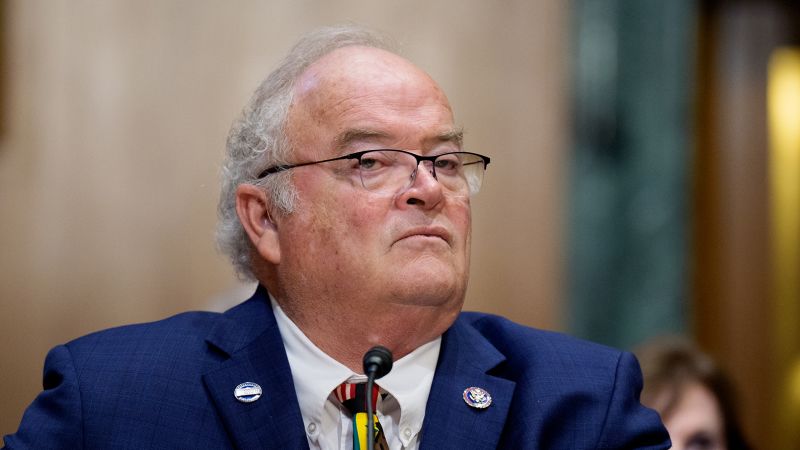In a significant administrative move, President Donald Trump has decided to remove Billy Long from his position as commissioner of the Internal Revenue Service (IRS), a role Long had only recently assumed following his confirmation just two months prior. This development has raised numerous questions and concerns not only regarding the IRS but also within the broader spectrum of Trump’s administration. Multiple sources close to the situation shared this news with CNN, further indicating an unexpected and abrupt shift in leadership.
To fill the void left by Long, it has been reported that Trump has selected Treasury Secretary Scott Bessent to step into the role as acting head of the IRS temporarily. This decision, which comes at a tumultuous time for the agency, highlights the urgency with which the administration is seeking a more stable leadership structure while it searches for a permanent successor. According to officials from the White House, this transition appears to be part of a broader strategy to address ongoing challenges within the IRS while maintaining presidential loyalty and influence.
There are indications that Trump plans to nominate Long for an ambassadorship now that he has vacated his position at the IRS. This change in direction reflects a strategic maneuver within the Republican Party to place loyalists in key positions while ensuring they continue to serve the administration’s broader goals. Those familiar with the situation suggest this move is merely a reshuffling within the administration rather than a full-on rejection of Long’s capabilities.
The IRS, particularly during Trump’s second term, has experienced significant instability, with a turbulent leadership history characterized by rapid turnover. The recent reshuffling has led to seven different individuals leading the agency since Trump regained the presidency in 2024, showcasing an unprecedented level of instability at the commissioner level, which has not been seen in the IRS’s political history.
While the IRS officially declined to comment on Long’s removal, the Treasury Department also did not immediately issue a statement. Reports such as the one from The New York Times, which first broke the news of Long’s dismissal, highlight a concerning pattern of leadership failings within the IRS and the potential implications for public trust in the agency moving forward.
Billy Long’s appointment had always been somewhat controversial given his history that includes limited experience in tax policy, a past linked to a disreputable tax credit, and notable support for abolishing the IRS altogether. Surprisingly, recent weeks gave no real indications of turmoil regarding Long’s standing with the administration; he had conducted himself in a manner that seemed unperturbed by the ongoing fluctuations typical of Trump’s management style.
Known for his personable demeanor, Long had a habit of communicating in an informal manner with IRS staff, sometimes sending emails with amusing subject lines encouraging them to leave early on Fridays. Most notably, he reached out to employees with messages that showcased his effort to foster a more engaging and friendly workplace culture despite the backdrop of bureaucratic undertones.
However, the volatility at the top level of the IRS carries significant ramifications for its operations. Under Trump’s administration, there has been a noted decrease in the workforce, with a loss of approximately 25% among employees, which has been attributed to a series of government budget cuts and buyouts. This has further complicated the agency’s capabilities to fulfill its duties effectively, raising concerns about efficiency and public service.
The position of IRS commissioner is traditionally one of stability, and the current situation involving nominees and acting heads—especially given that the former commissioner Danny Werfel stepped down upon Trump’s inauguration—exemplifies a contentious atmosphere ripe with inconsistency and apprehension.
Adding to the narrative, several other appointees have come and gone, with Doug O’Donnell and Melanie Krause briefly filling the role before Long was confirmed. Each of these transitions has raised eyebrows and spurred discussions about the management philosophies dictated by Trump’s appointees. Long’s departure marks yet another chapter in this ongoing saga of dissatisfaction and upheaval within a crucial government agency, leaving many wondering what the future holds for the IRS under the pending leadership of Scott Bessent and beyond.











